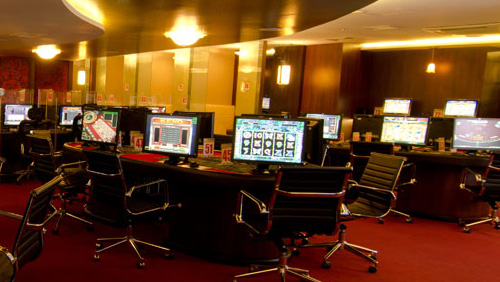Despite the restrictions imposed by the state regulator on gambling venues, operators are still confident that the Philippine eGames industry will remain robust in the coming years.
 PhilWeb Corp. CEO Dennis Valdes told delegates at the ASEAN Gaming Summit 2018 that the growth of the domestic eGames sector lies not in the number of gambling venues but rather the size of the gambling facilities.
PhilWeb Corp. CEO Dennis Valdes told delegates at the ASEAN Gaming Summit 2018 that the growth of the domestic eGames sector lies not in the number of gambling venues but rather the size of the gambling facilities.
At present, Valdes estimated that there are currently about 300 eBingo sites and some 200 eGames cafes across the country.
Valdes pointed out that one of the conditions set by the state regulator for eGames café operators is that the gambling facilities should be located in the districts where gambling is allowed, not near churches and schools.
To mitigate the effect of the closure of some facilities, Valdes said operators have increased the seating capacity of other gambling locations that remain operational.
The panel of eGames operators agreed that the business in smaller Philippine islands has contributed immensely to their operations. The major challenge that most Philippines eGames operators face is that they are burdened with hefty taxes.
Hatch Asia’s Ron Arambulo, on the other hand, recognized the importance of Philippine integrated resorts in helping the eGames industry enhance the quality of their offerings.
Giving the most comfortable and memorable experience to players doesn’t necessarily mean that operators must go beyond their budget, according to Arambulo.
Meanwhile, DFNN Vice President Chris Tio highlighted the importance of the eGames industry to the Philippines, saying that it served as an alternative revenue stream to fund the government’s social and national development programs.
Data shows that the traditional bingo and e-bingo licensees gave PAGCOR PHP9.45 billion ($187.58 million) in 2017, while the state regulator’s share from other gaming licensees such as eGames, poker and junket operations was at PHP5.50 billion ($109.17 million).
Tio, however, said that the Philippine government could earn more from eGames if it was more serious in stamping out illegal gambling in the country.





